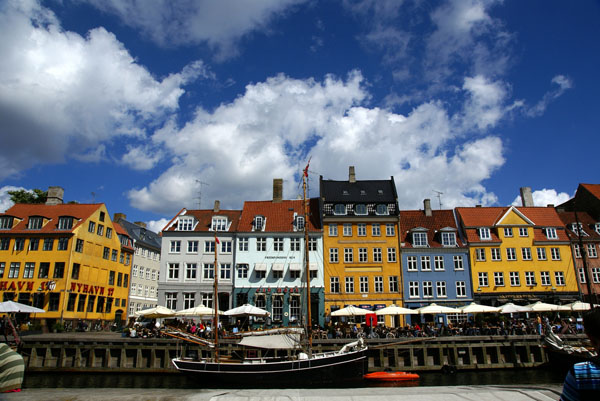So: You’ve heard about this big summit in Copenhagen, at which negotiators will try to save the planet by agreeing to cut greenhouse gas emissions. The news that President Obama will be there for the conference’s last few days — coming on the heels of China and India’s announcements of nationwide efficiency targets — has raised expectations that world leaders will be able to tout substantive progress by the end of next week. But what exactly is on the agenda in Denmark, and what can we realistically expect?
Herewith, a quick and dirty guide to the Copenhagen talks:
â¢Â First off, don’t expect a legally binding agreement along the lines of the 1997 Kyoto Protocol. That was once the goal, but, despite the urgency of the issue, expectations have now been reduced. The plan is now simply to achieve a more general political commitment between nations. The details would be worked out at a followup confab next year, where a binding deal would be announced. As White House Press Secretary Robert Gibbs put it in this morning’s gaggle: “The international hope is that we get an agreement on how to move forward on something that’s more binding.” In other words, this is a conference to set up another conference.
â¢Â Another key point: That hoped-for political deal is being negotiated on two tracks — one for those countries that ratified Kyoto and one for those that didn’t. The former group — let’s call them the honors track — will try for a new commitment period to reach the goals set out at Kyoto, under which industrial countries that pledged to reduce their emissions, collectively, to 5.5 percent below 1990 levels. But it’s the latter group, which includes the world’s second largest carbon emitter, the U.S., as well as several developing countries — the special slows, perhaps — that’s by far the more important. They’ll work towards a deal of their own, perhaps to be called the Copenhagen Protocol.
But there are numerous awkward sticking points. For instance…
⢠The U.S.: The Obama administration has proposed cutting emissions by 30 percent from 2005 levels by 2025, 42 percent by 2030 and 80 percent by 2050. Some leaders of the global effort have already said that’s not sufficiently ambitious. And yet, given the procedural set-up of the U.S. Senate and the utter inflexibility of the Republican party, it may well be more ambitious than what Congress will ultimately sign off on.
⢠The developing countries: They’re arguing that to help fix a problem they did little to create, they’ll need substantial financial help — perhaps hundreds of billions of dollars — from richer countries, so that they can bypass carbon-based fuels and start building clean-energy economies.
⢠China: The world’s biggest carbon emitter as pledged to reduce its emissions by 40 percent to 45 percent per unit of economic output. But that promise has been dismissed by some European countries as falling short of what’s needed.
⢠Russia: Perhaps weirdest of all, Russia’s success in reducing emissions — thanks to the collapse of its industrial sector in the 1990s — could paradoxically work against the global effort. That’s because the reductions have left Russia with a surplus of emissions credits, under Kyoto’s cap-and-trade program. If Russia sells those credits, it could send the price of carbon plunging in the world’s emissions markets. And economists say that a stable and relatively high price for carbon emissions is needed if investments in clean-energy technologies are going to be made.
⢠The opposition: All these technical issues are being hashed out against the backdrop of efforts by right-wing activists, aided by ratings-obsessed cable news, to obstruct progress. Saudi Arabia — no fan of moving away from fossil fuels — has now seized on those hacked emails which show climate scientists discussing how to bury work skeptical of global warming. Though the emails don’t come close to undermining the scientific consensus on warming, summit leaders have nonetheless been forced to address the issue.
Politics being what it is, there’s little doubt that, whatever actually happens, Obama and the other world leaders gathering at the summit next week will make a show of announcing progress. But it seems likely that, even if things go well, Copenhagen will be as much a beginning as an end.









